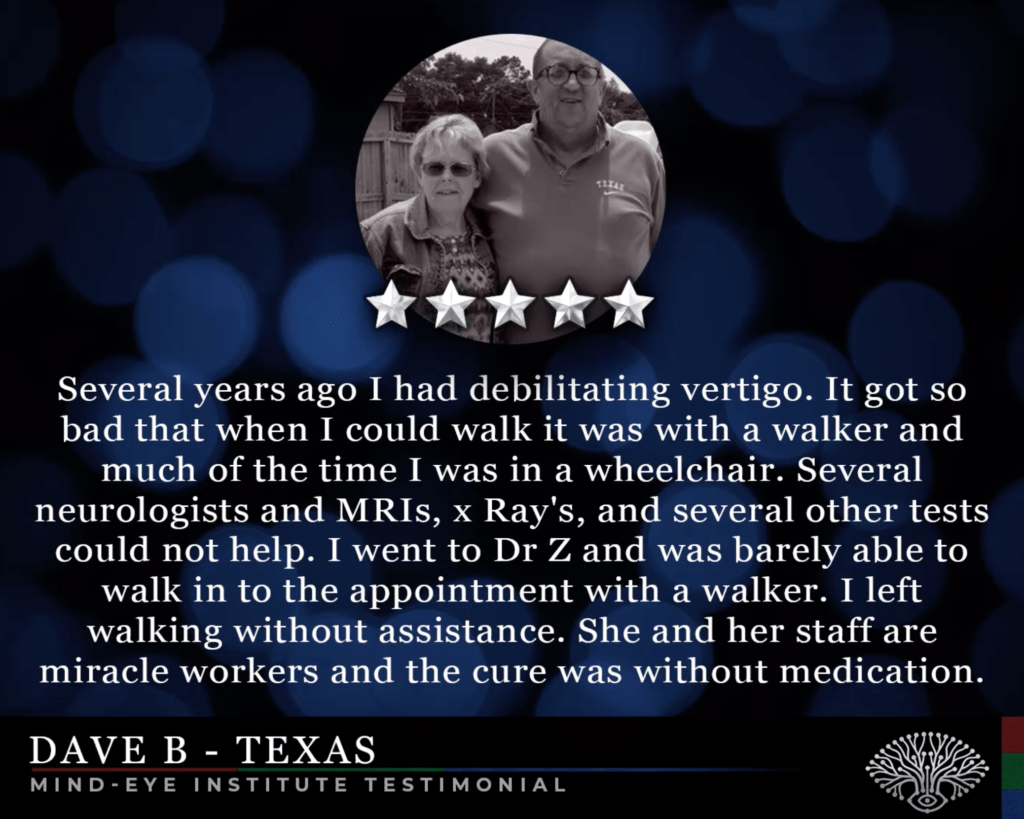
For Rev. Dave Barger, miracles sometimes come disguised as cellophane tape.
That’s because two small strips of tape placed in the bottom outer corners of his eyeglass lenses mitigated the severe vertigo, dizziness, balance issues, and even tremors that had plagued him for nearly six months, putting him in a walker and a wheelchair and preventing him from working, preaching or driving a car.
“The tape helped my eyes re-focus. I was unaware that my pupils had started drifting in and out – to the left and right – after I had purchased new eyeglasses with larger lenses,” says Rev. Barger, who then was serving as pastor for the New Home Missionary Baptist Church in Lansing, Mich. “When Dr. Zelinsky put the tape on the lenses, my eyes, my entire body calmed. I experienced almost immediate relief.”
The “Dr Zelinsky” he references is Deborah Zelinsky, O.D., an optometrist who serves as research director of the Mind-Eye Institute based in Northbrook, Ill. She is considered a worldwide expert in visual processing, visual performance, neuro-alignment and neuro-rehabilitation.
Work at the Institute includes maximizing patients’ visual performance and visual processing capabilities and helping calm the nervous system’s reactions to environmental changes through use of prescriptive, non-traditional eyeglasses, contact lenses or other optometric interventions, such as prisms and tints, that selectively stimulate the way light is dispersed across the retina
In Rev. Barger’s case, the environmental change affecting his visual performance was the lenses with the “added real estate.” He bought the larger lenses in August 2014 because he liked their “Buddy Holly look.”
Following thorough examination at the Mind-Eye Institute in early 2015, Rev. Barger was prescribed new lenses, including sets with amber and green and later blue and purple tints. The tape on his old lenses remained in place until the prescriptive eyeglasses arrived.
“What Dr. Zelinsky did for me was truly dramatic,” says Rev. Barger, who is now a hospice chaplain at the Abiding Life Baptist Fellowship in a suburb of Houston. “I was desperate at the time. I no longer was able to preach Sunday or Wednesday evenings and, on days when I did preach, it was often from a wheelchair. I could only work about two hours a day before having to return to bed. I did not know how I would provide for my wife financially.”
He relates how he had gone from physician to physician, including two neurologists, seeking solutions for his worsening condition but none of the specialists could find any physical abnormality or brain disorder underlying his problems, even going so far as to suggest his symptoms might be psychosomatic.
“The medical community offered me nothing but criticism. Then a woman at my church told me about Dr. Zelinsky. My wife and I made the five-hour drive from our home in Michigan to the Mind-Eye clinic. That trip proved life-altering,” he says.
“I left the clinic that day not needing my walker. A week later, I was back to driving,” he says.
Since then, Rev, Barger has referred a couple of friends to Dr. Zelinsky, including a man with post-traumatic stress disorder. “That man has been helped as miraculously as I have been,” Rev. Barger says.
Meanwhile, Rev. Barger says he now is back to normal, working, enjoying life –and, of course, still sporting that “Buddy Holly look.”

